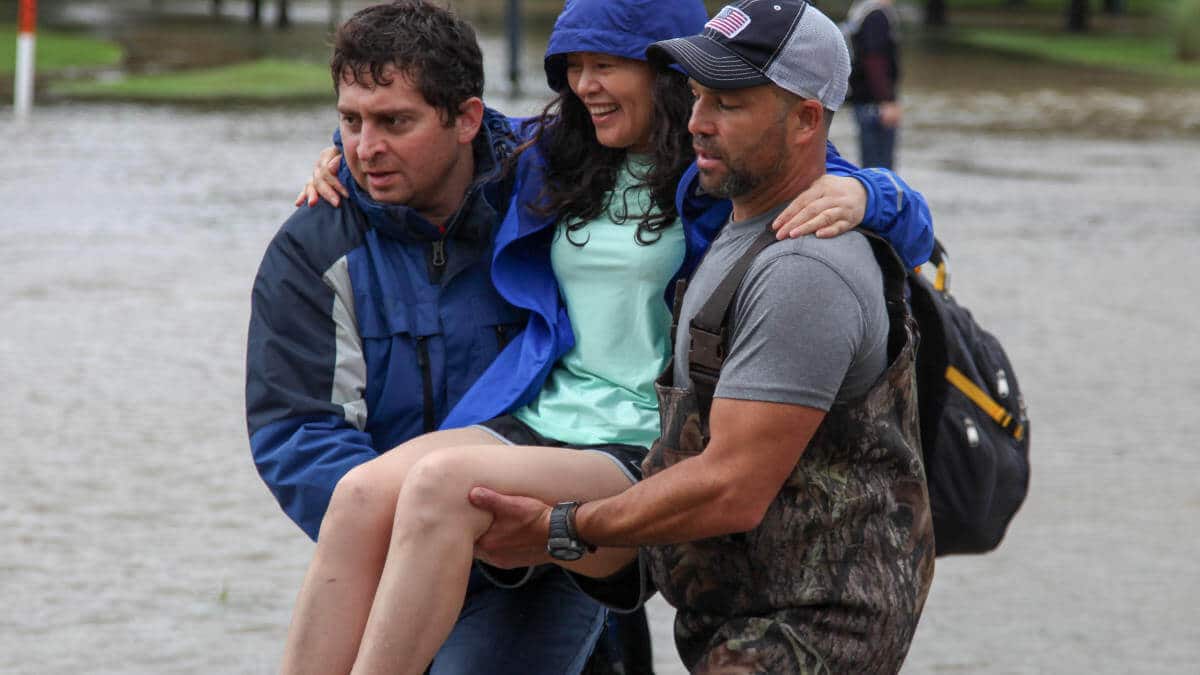Florida, Louisiana & Texas: What Employers should know about FMLA after Hurricanes Harvey & Irma

The tragic flooding and disaster brought by Hurricanes Harvey and Irma has demonstrated a spirit of cooperation, heroism, and neighborly love over the last several weeks. As with many other natural disasters before it, Americans have proved to respond quickly and compassionately during a natural disaster.
Still, for business owners, the questions of how to remain in compliance with employment laws during a natural disaster remain. One major question is often how the Family Medical Leave Act (FMLA) applies to a natural disaster like Harvey and Irma.
Employees who want to take leave under FMLA as a result of Harvey or Irma:
FMLA doesn’t specifically provide protected leave for employees who want to take leave after a natural disaster.
In fact, one employee’s lawsuit was dismissed by the court when he wanted to clean flood waters out of his mother’s basement. Even so, that particular lawsuit may have had a different outcome if the employee had done a few things differently. He had already used 6 months of intermittent leave to care for his mother. He then missed 4 days of work and failed to call in for the absence.
After that, he tried to claim that he needed more FMLA leave to help clean flood waters from his mother’s basement, but was unable to connect that assistance to his mother’s illness. His employer refused and when he took leave anyway, he was terminated. The court found that he failed to link the basement cleanup with “caring for” a family member with a serious health condition.
However, this example doesn’t mean that employees couldn’t qualify for leave under FMLA. It is vital that employers understand when and how employees can take leave.
First, employers can provide leave from their own employment policies even if the leave isn’t protected under FMLA or state law.
FMLA would apply when, as a result of the natural disaster, the employee suffers from mental or physical illness or injury that meets the definition of a serious illness. Injuries or illnesses would include any injury that includes at least 1 day’s stay in a hospital, hospice or residential care facility.
If an employee’s chronic health condition flares up as a result of Hurricane Harvey or Irma, and renders them unable to work, then FMLA would also apply. For example, an employee’s chronic condition of stress or anxiety may flair up and render them unable to perform their job.
Additionally, if an employee needs to care for an employee with a serious health condition, that would also qualify for FMLA use. This is true even if the need to care is created by the natural disaster. For example, if one of an employee’s parents has diabetes. Then the employee may need to help administer the medication in the case of a loss of power. Further, employees may need FMLA time to help family members when their medical equipment isn’t working due to the conditions.
Lastly, employees are entitled to FMLA leave if they are injured from the natural disaster. These conditions could create partial disability and obligate the employer under the American with Disabilities Act (ADA). These conditions can also arise weeks or months after the natural disaster. One example of this is post traumatic stress disorder.
- When an employee’s chronic health condition is spurred by the natural disaster
- To help care for a family member with a serious health condition, even if care is needed because of the disaster
- When an employee is injured as a result of the natural disaster (can include emotional and mental health conditions such as PTSD)
Employees who are currently on FMLA leave when disaster strikes
If an employee is already on FMLA leave when the natural disaster strikes, then there are two main factors to determining how FMLA leave applies.
Those factors are first, whether or not the business remains open and secondly, how long the business closes if it doesn’t stay open.
If the business remains open during and following a natural disaster, then any employees on FMLA leave continue to use FMLA leave.
However, the rules change if the business closes due to a natural disaster.
If an employer is closed for less than a week during or following a disaster, then employees still continue to use their FMLA leave. That’s because FMLA treats short term business closures the same as holidays. FMLA regulation provides that “the fact that a holiday may occur within the week taken as FMLA leave has no effect; the week is counted as a week of FMLA leave.”
However, if the business closes for a week or more, then FMLA leave is suspended for employees currently on leave. FMLA regulations state that if a business is closed for more than a week for holidays, such as Christmas or school break, and employees are not expected to report for a week or more, that FMLA leave does not apply to employees already on leave. That means that during the time in which the business is closed and employees are not expected to report for work, FMLA leave is suspended for employees on leave. Employers must treat these employees the same as other non-leave employees who are not expected to come in for work either.
- If the business closes less than 1 week because of the storm then existing FMLA still counts during that time of absence
- If the business is closed for more than 1 week due to the storm, then employees already on leave have their leave suspended until they would have been expected to return to work.
Steps for Employers
Managing FMLA guidelines during and after Hurricane Harey can be tricky, but are not the only laws that employers must be aware of and compliant with. Unfortunately some employers lose required paperwork, timecards and other physical documentation of employee payroll, time worked and other employment information. It is during natural disasters that employers often realize how vitally important it is to maintain electronic records such as SwipeClock provides as part of their timekeeping solutions.
Employers should work to prepare before a natural disaster to create policies for absences that will help to protect them and will inform employees of absence policies before disaster strikes. For employers already affected by a natural disaster, they should obtain as much information as possible regarding the FMLA request. Employers should provide employees with all the required FMLA information and the medical certifications and allow employees to provide the documentation required that support their FMLA leave. Employers should ensure that the medical certification does cover the leave issues at hand and when information is missing, should follow up with employees for additional information.
Let SwipeClock Help
Businesses in texas and Louisiana must be diligent to maintain employment compliance during and after any disaster. Fortunately SwipeClock’s software can store information remotely so that even when the employer’s physical premises are in danger, their time and attendance information is not at risk.
Additionally, these businesses have to also comply with Federal Overtime Laws, the Family Medical Leave Act and any other national or local laws that are enacted. SwipeClock provides a comprehensive array of workforce management and time tracking tools that can help businesses to more easily stay in compliance with local and national laws.
Records are effortlessly kept for years and accrual is automatically tracked and reported to employees according the state and city laws. Additionally, with geo-timekeeping clocks, businesses can effortlessly track time worked in specific cities to ensure compliance.
Written by Annemaria Duran. Last updated on September 5, 2017,
Simplify HR management today.
Simplify HR management today.
Your Guide to GPS Time Tracking (Geofencing)
Updated March 19, 2024 When your business has employees working remotely or at various job sites, time tracking can become a challenge, particularly if the company relies on physical clocks for punching in and out. But offering a mobile app or web-based tracking solution can cause some concerns. You might wonder whether employees are clocking…
Read MoreThe Employer’s Guide to Federal & State Meal/Rest Break Laws [See all 50 State Laws Here]
Updated January 23, 2024 Under the federal Fair Labor Standards Act (FLSA), employers are not required to provide meal or rest break periods to employees. However, some states do have laws in effect dictating when and how often an employee should receive a break, as well as whether these breaks are paid or unpaid. In…
Read More




